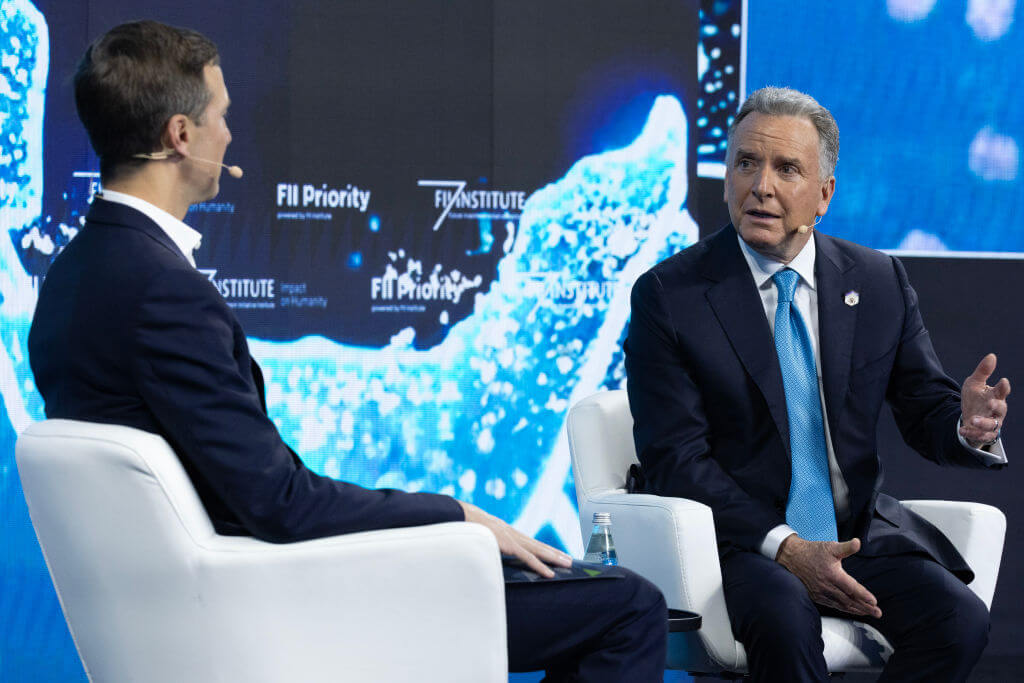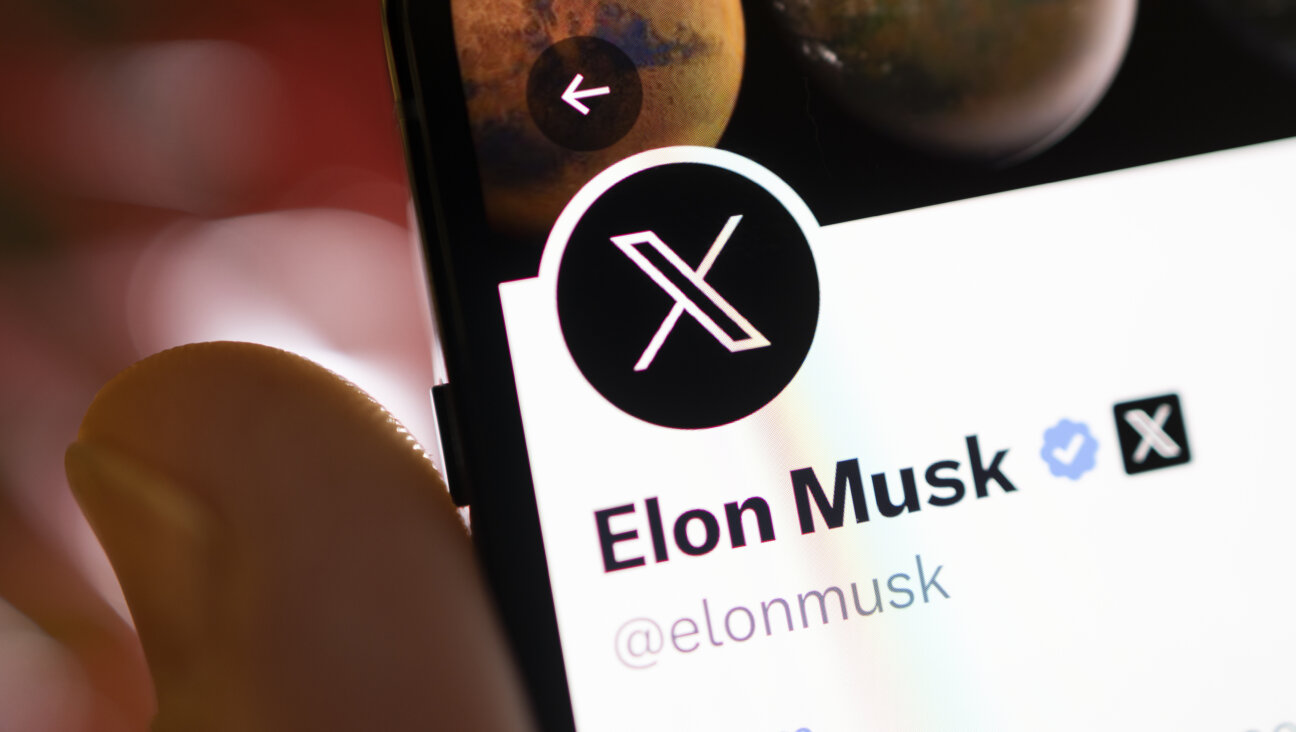Kushner and Witkoff tout real estate expertise in shaping Trump’s Gaza policy
At a Saudi-sponsored Miami investment summit, the two Trump confidantes reflect on their unconventional path to diplomacy and roles in Middle East negotiations

Jared Kushner and Steven Witkoff at the FII PRIORITY Summit on Feb. 20. Photo by Joe Raedle/Getty Images
Two Jewish real estate moguls traded compliments Thursday in a softball question-and-answer session at an unusual investment conference in Miami Beach. The topic was not real estate, but the Middle East, the political playground for the two moguls and confidantes of President Donald Trump.
“There’s been more success in your diplomacy in your first 30 days of service than most diplomats achieve in a lifetime,” Jared Kushner, Trump’s son-in-law and first special adviser on the region, told Steve Witkoff, Trump’s golfing buddy and current envoy.
“You began this whole thing in the first Trump administration and you were so successful,” Witkoff responded. “I think the secret sauce is correcting miscommunication and creating good communication. And you did it so well.”
The lovefest unfolded on a conference stage, hosted by the Future Investment Initiative Institute and sponsored mainly by the Saudi Public Investment Fund. Affinity Partners, Kushner’s private equity firm, secured an estimated $2 billion investment from that fund, which is overseen by Crown Prince Mohammed bin Salman.
Trump addressed the conference on Tuesday. He told the crowd he would want his legacy to be bringing peace “to the rest of the world”
Neither Witkoff nor Kushner had diplomatic experience before stepping into their roles. What they did have is Trump’s trust, and they shared his unconventional approach to international conflicts.
In 2020, Kushner was instrumental in brokering the normalization deals between Israel and several Arab countries, known as the Abraham Accords. Witkoff, meanwhile, last month helped finalize a ceasefire-hostage deal between Israel and Hamas that President Joe Biden had first proposed, and is also involved in negotiations to end the Russia-Ukraine war.
On Thursday, Kushner touted Witkoff’s “background of negotiations and transactions and deals, which is much different than diplomacy.”
Witkoff said he’s blessed for the opportunity, which he credited Kushner for convincing him to undertake. “I get to do something that I never thought of,” Witkoff said. “I’m excited when I wake up in the morning looking at my texts and my emails.”
The two men have both expressed strong support for Trump’s controversial plan to “take over” Gaza, relocate its 2 million Palestinian residents and develop it into a “Riviera on the Middle East.” Kushner in fact first outlined a version of the idea last March at the Harvard Kennedy School.
On Thursday, Witkoff — a lawyer who made a fortune first by developing tenement buildings in Harlem and the Bronx and later iconic properties like the Woolworth Building — drew on his real estate experience to promote the Gaza plan.
“You can’t develop an apartment building in Manhattan in five years, and you have to see what the devastation that exists there today in Gaza,” he said. “I sat in Gaza with a bulletproof vest on looking at the scenery there, and I don’t know why anyone would want to live there today.”
He said Trump’s plan could include a clause for the right of Palestinians to return, “engendered a discussion throughout the entire Arab world about different types of solutions that before he talked about this, people would have never considered, and I think that’s a good thing.”
Witkoff is set to meet on Thursday with Ron Dermer, a former Israeli ambassador to the U.S. and close adviser to Prime Minister Benjamin Netanyahu who is heading the Israeli negotiating team in talks on a permanent ceasefire in Gaza. He acknowledged the challenge of squaring the goals of ending the war, returning all living and dead hostages to Israel and removing Hamas from power in Gaza.
“We are making a lot of progress in the conversations,” Witkoff said without providing details. “Hopefully, it will lead to some good results.”
A message from our Publisher & CEO Rachel Fishman Feddersen

I hope you appreciated this article. Before you go, I’d like to ask you to please support the Forward’s award-winning, nonprofit journalism so that we can be prepared for whatever news 2025 brings.
At a time when other newsrooms are closing or cutting back, the Forward has removed its paywall and invested additional resources to report on the ground from Israel and around the U.S. on the impact of the war, rising antisemitism and polarized discourse.
Readers like you make it all possible. Support our work by becoming a Forward Member and connect with our journalism and your community.
— Rachel Fishman Feddersen, Publisher and CEO




























